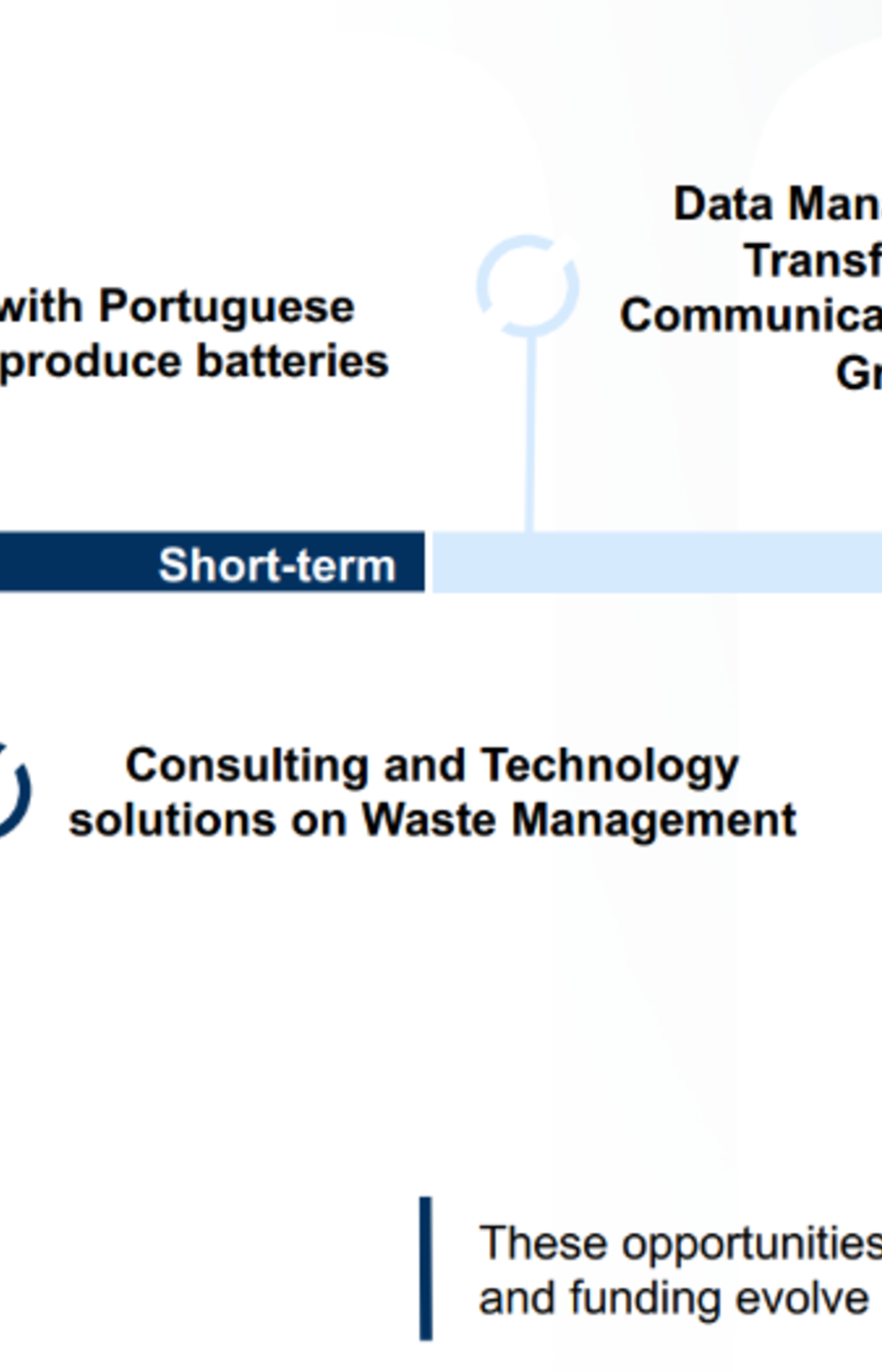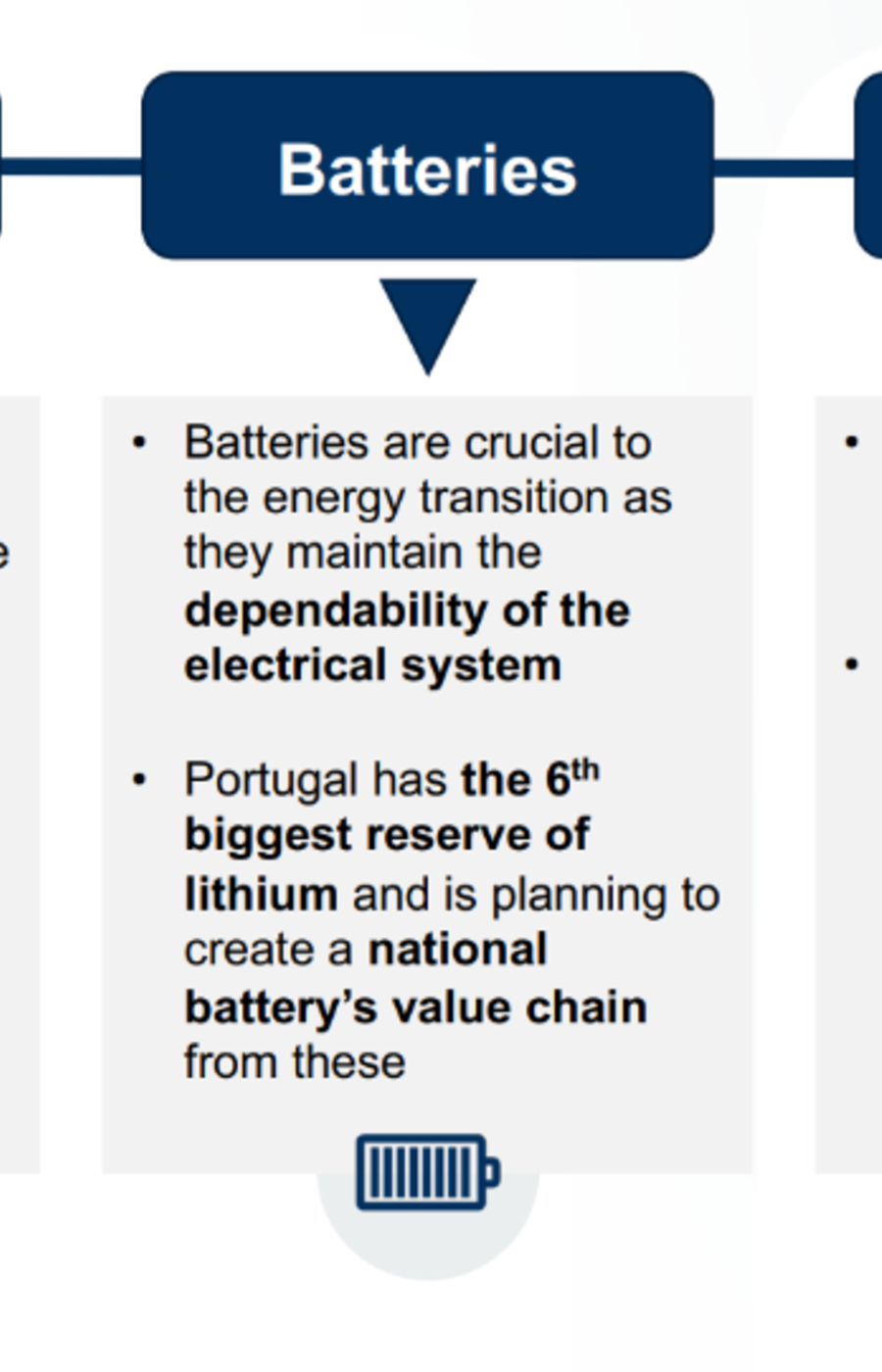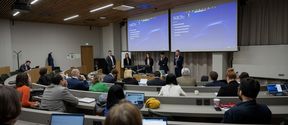Project team identified business opportunities for Finnish companies in the energy sector in Portugal | Aalto University (external link)
The Portuguese energy market presents both short-term and long-term opportunities across various sectors

Portugal and Finland are at geographically opposite ends of the European Union, but they have a surprising number of similarities. They are countries with relatively small populations, which border much larger neighbours and have specific national climates. Such similarities can lend themselves well towards cooperation and open new business opportunities.
‘Market opportunities for Finnish Companies in the Portuguese energy sector’, is a collaborative pilot project commissioned by the Embassy of Finland in Portugal, coordinated by Aalto University’s School of Business in collaboration with Nova School of Business and Economics in Portugal, and conducted by students from Aalto University and Nova. The objective was to identify business opportunities for Finnish companies in the Portuguese energy sector. The Embassy briefed the participant student groups about how Portugal is looking to fulfil national and European-level carbon neutrality and other environmental goals using policy instruments and targets. Rather than simply pair supply and demand, the student groups first conducted a comprehensive analysis of the Portuguese energy mix. This included identifying Portugal’s current energy sources, analysing the future energy mix and climate reduction targets and prosing pathways to achieve this. By adopting this systemic approach, the student groups were able to identify the necessary skills, technology, and competencies across the value chain, and at which points in the chain Finnish businesses could enter. The five energy domains were hydrogen, smart grids, batteries, energy efficiency, and waste management (energy recovery).
This approach allowed the student group to go beyond simply identifying an optimal point for a Finnish waste management business to enter the Portuguese energy market. Instead, they went further, analysing how Finnish technology could help achieve policy aims, with limitations in the current Portuguese waste management regulations such as incentives driving companies and people to take waste into landfill.
The example of waste management, and the wider project, serve to underscore how complex the energy transition is, in terms of how deeply interconnected various factors are. Policy, regulations, business practices, and ecological expertise are just some of the sectors involved in the energy transition. As this project demonstrates, identifying requisite skills and competencies, is crucial to an effective transition towards a future run-on renewable energy.


Project Team: Fanny Vuollet, School of Business, and Jimi Bäck, School of Electrical Engineering, Aalto University, Francisca Pereira, João Sousa and Michael Hofreither, Nova School of Business and Economics (Nova SBE)
Academic Supervisor: Inês Peixoto, Postdoctoral researcher, Department of Management Studies, School of Business, Aalto University
Text: Peter Taggart

The Portuguese energy market presents both short-term and long-term opportunities across various sectors

At the School of Business we strive for better business and better society. We excel in education and research with a multidisciplinary approach and in collaboration with our partners.
At Nova SBE you will find top quality programs, excellent faculty and a worldwide reputation. We are ranked by the FT among the TOP 30 Business Schools in Europe. Be part of the impact we want to have in the world